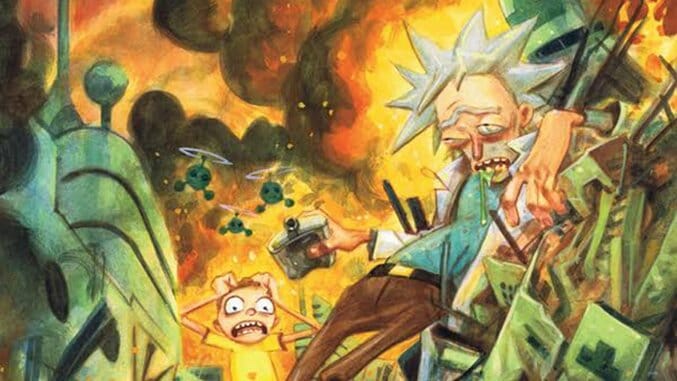Exclusive: Incoming Rick and Morty Comic Writer Tom Fowler Takes Series to Sad, Absurd Extremes
Main Image by Tom Fowler
To one audience, Adult Swim’s Rick and Morty is a farcical sendup of science fiction tropes, peppered with absurdist humor, graphic violence and profanity. The story of a borderline sociopathic mad scientist exploiting his hapless grandson through myriad planets and dimensions, the animated series has skewered the 18-to-35-year-old demographic. “It’s a fun show for fun people,” one could say, to offer an adequate but temperate description.
To others, Rick and Morty is the poetry of our everlasting souls. And if anyone so much as tweets a less than utterly enthralled observation of Dan Harmon and Justin Roiland’s gift to the human race, we will find them, shove dirty forks into their eye sockets, and then do some other really mean, hurty stuff.
-

-

-

-

-

-

-

-

-

-

-

-

-

-

-

-

-

-

-

-

-

-

-

-

-

-

-

-

-

-

-

-

-

-

-

-

-

-

-

-












































